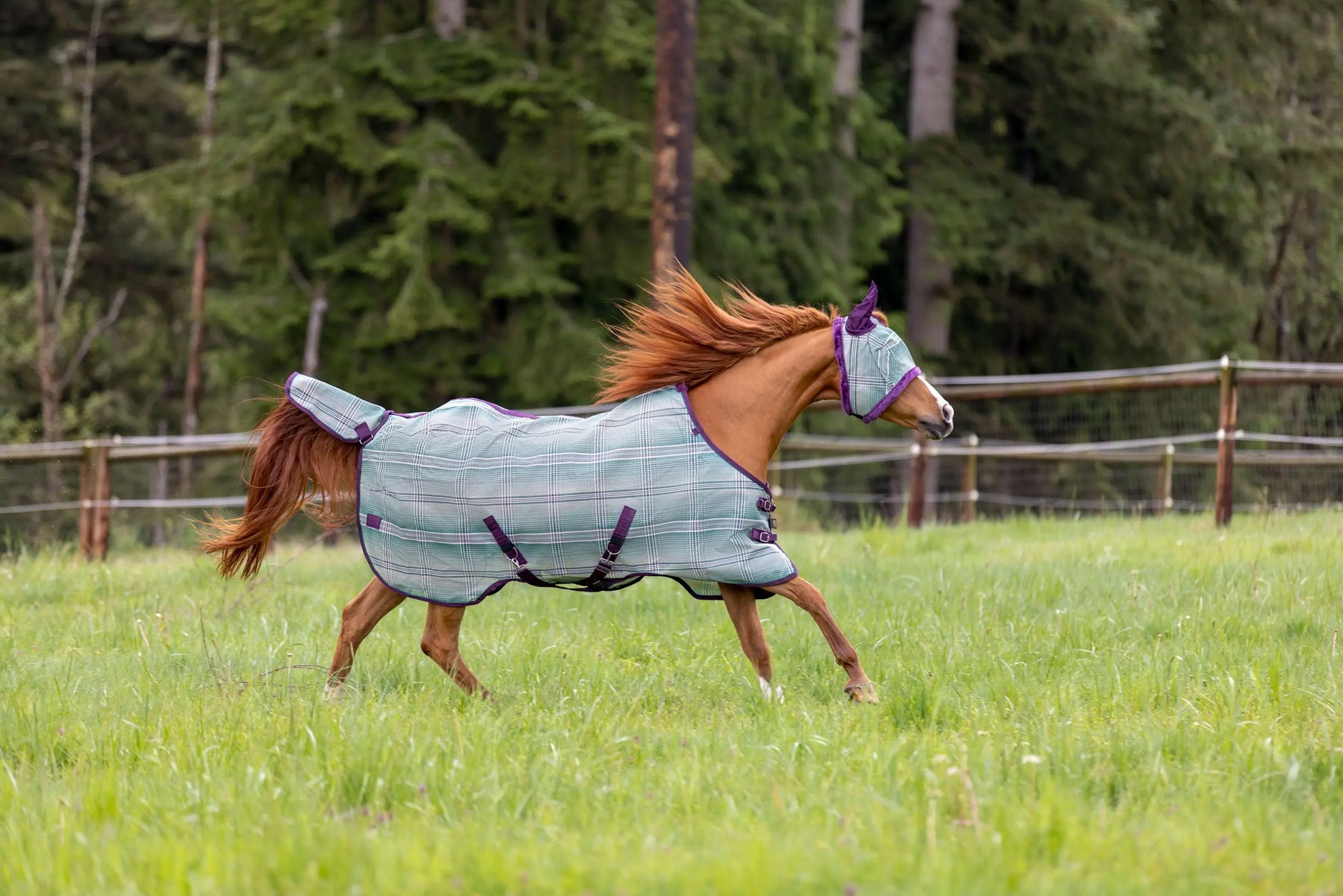
Health Alert: Vesicular Stomatitis in Horses
If you are an equestrian, you surely have heard about the recent Vesicular Stomatitis outbreak. But did you know that Kensington Protective Products can help you protect your horse against this disease?

Vesicular Stomatitis (VS) is a viral disease that affects horses, cattle, and swine. It is highly contagious, spreads rapidly among animals, and is caused by the Vesicular Stomatitis Virus (VSV), which belongs to the family Rhabdoviridae. The virus is transmitted through direct contact with infected animals or by biting insects such as sandflies, black flies, and mosquitoes.
Symptoms of Vesicular Stomatitis in Horses
The symptoms of Vesicular Stomatitis in horses include:
- Fever
- Loss of appetite
- Lesions in the mouth, on the lips, tongue, and gums
- Lesions on the teats, udder, and sheath
- Lameness and reluctance to move
- Excessive salivation
- Swelling of the head and neck
The lesions caused by the virus are painful and may cause difficulty eating and drinking. The virus can also cause severe weight loss and dehydration.
Treatment of Vesicular Stomatitis in Horses
There is no specific treatment for Vesicular Stomatitis in horses. Treatment mainly involves supportive care, such as providing fluids and electrolytes to prevent dehydration. Horses with severe symptoms may require hospitalization.
Prevention of Vesicular Stomatitis in Horses
Prevention of Vesicular Stomatitis in horses involves taking measures to reduce the risk of infection. These measures include:
- Managing and preventing insect bites
- Barrier horse clothing can be your first line of defense. Even if you board and have no control over the other insect management strategies, you can dress your horse in fly sheets, fly masks, and fly boots.
- Kensington's best-selling Protective Sheet provides a durable insect barrier that also shields against UV rays. Pair it with the optional Neck Cover and Belly Band for comprehensive protection. Available in Mini, Pony, and Draft sizes, too!
- Kensington is also known for their fly masks. Choose from the traditional style masks, available in web or fleece trim, with or without ears, and with or without extended nose. These are available in Mini, Pony, Horse, and Draft sizes. You can also pick the UViator collection, which provides all the insect protection plus 90% UV blocking.
- Fly boots are a great tool in your box, too - it will protect against bites, while stopping farrier-hated stomping! Choose from Kensington's traditional fly boots, or our revolutionary superior airflow Bubble Boots.
- Airflow, either natural, or assisted by fans. Most insects will be discouraged by air currents. Consider fans within the stable, and adding Kensington Aisle Guards, Stall Guards, or Stall Door Guards to reduce obstructions and increase airflow.
- Stable cleanliness, including proper manure disposal
- Using insect repellents or insecticides, both on the horse or within the stable, to prevent insect bites
- Fly traps can help reduce the populations. Sticky traps, baited traps, and electric traps all can be utilized.
- Quarantining new animals before introducing them to the herd
- Practicing good hygiene, such as washing hands and equipment between animals
- Isolating infected animals
- Avoiding contact with infected animals or their secretions
Conclusion
Vesicular Stomatitis is a viral disease that affects horses, cattle, and swine. The disease is highly contagious and can cause severe symptoms in horses, including fever, loss of appetite, and painful lesions in the mouth and on the teats.
There is no specific treatment for the disease, and prevention mainly involves reducing the chance of insect bites, plus mitigating the risk of infection through isolation, quarantine, and good hygiene practices.
If you suspect that your horse has Vesicular Stomatitis, contact your veterinarian immediately.
